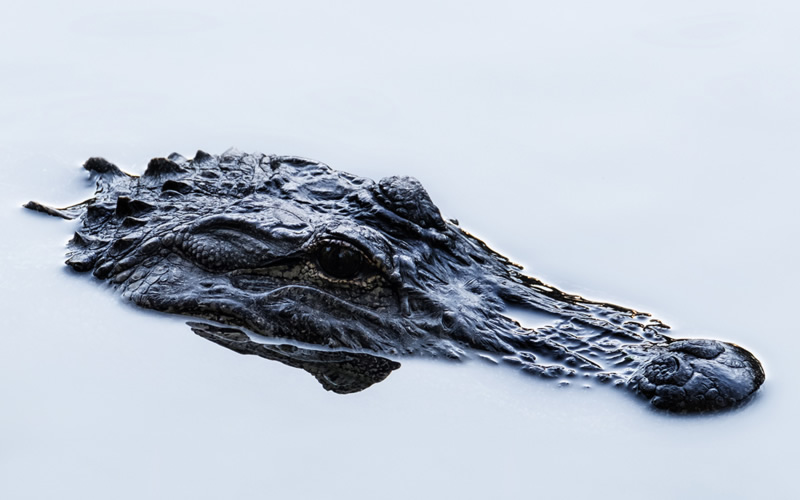Photo credit: Georgia Nature Photographers Association.
By Elliott Brack, editor and publisher | It was on a Wednesday about 5:30 p.m. back about 1967, when putting together the front page of the weekly Wayne County Press in Jesup. A phone call from the county health director, Dr. Dan Glover, was urgent.
“We’ve got a real problem we just realized, and we want you to put this story on the front page for tomorrow’s newspaper,” he pleaded with me. (That would consist of tearing up what we had laid out previously on the front page, just near the deadline time, not a good time for re-doing this page. I was skeptical.)
 So I asked: “What’s so important to cause this?”
So I asked: “What’s so important to cause this?”
“We caught a rabid raccoon north of the Satilla River.”
“That’s all?” I asked.
“Well, yes,” the doctor replied, “But that’s important. You see this means that the rabies in raccoons is moving north. People need to know that, since they or their children could come into contact with a raccoon that’s rabid, and that would be horrible for both the child, the family and the community.”
After further convincing, yep, we tore up the front page so that the community would know about this new problem immediately, instead of having to wait a week until the next edition.
Today rabid raccoons are often reported in North Georgia. Nine cases of confirmed rabies have been reported in South Hall County this year. Anyone living in an area where you see an animal acting abnormally, should contact Gwinnett County Animal Services. Animal owners are encouraged to vaccinate their domesticated pets for rabies.
So, since 1967, the rabid raccoon population has constantly moved northward to perhaps all of Georgia.
These thoughts came to mind when hearing recent reports of alligators in and around Atlanta waterways. People are being warned about the presence of the ‘gators. These animals should be avoided. Parents need to emphasize that their children know of the dangers of even smaller alligators.
While alligators in South Georgia are not uncommon, the North Georgia area is not their natural habitat. But, we wondered, like the rabid raccoon, are alligators migrating northward more? They have been sighted in the Chattahoochee River in Cobb County, in Cumming, and more than 10 times in South Hall and Lake Lanier, with another one this week. If they are in the river in Cobb, and in Lake Lanier, remember Gwinnett is between these two points. It’s reasonable that they could also be in the Gwinnett portion of the river. Not only that, but once here for the summer, the alligators can bury themselves in mud for the winter, much like hibernation, and could spend the year-round here.
Jenifer Hancock Wisniewski of the Department of Natural Resources tells me that while some alligators may migrate here, it’s a far more reasonable position that people have brought small alligators to our area. They keep them as a…..well, not pet, but as a freak, that they may even feed. But soon people tire of them, since alligators grow, and they may then let them free to roam.
That, of course, is being irresponsible. But we can see that happening.
If you hear of an alligator in your neighborhood, call the Gwinnett Department of Animal Welfare and Enforcement, but that’s not easy. You have to listen to a 1:15 minute array of possible places to be transferred. Then when it stops, the message says “Press 7.” Guess what happens then: “No one is available to take care of your call.” All I wanted was to talk to a Gwinnett animal control officer!
So, best to call directly to the police, of which Animal Control is a part: 770 513-5000.
If you see an alligator, by all means, let Animal Control know!
- Have a comment? Send to: elliott@brack.net










Follow Us